Making new habits stick can be challenging, but it’s definitely not impossible. In fact, using these ten simple tips will make the process a lot easier and less frustrating.
So, if you’re looking to create some new, healthy habits, read on!
- 1. Be Clear About Your Purpose
- 2. Make It Realistic
- 3. Identify Your Trigger or Cue
- 4. Make It Easy and Manageable
- 5. Reward Yourself
- 6. Don’t Be Too Hard on Yourself If You Slip Up
- 7. Analyze Your Environment
- 8. Be Patient
- 9. Stay Motivated
- 10. Focus on One Habit at a time
- Having Fun Makes New Habits Stick
- Questions You May Have
1. Be Clear About Your Purpose

Have you ever wondered why you can’t seem to stick to your new habit?
Even though you’re motivated at first, it eventually fizzles out, and you’re back to your old ways.
The key to making a new habit stick is to be clear about your purpose. Why do you want to form this habit? What will it add to your life?
When you have a strong reason for changing your behavior, you’re more likely to follow through.
Your purpose for doing anything is the most crucial step. Without it, you will not achieve the result you desire.
2. Make It Realistic
One of the main reasons people fail at making new habits stick is because it’s unrealistic to their personality.
They try to do too much, too fast, and end up getting burned out, discouraged, or don’t even start.
The key is to make your new habit desirable, achievable, and sustainable.
You know yourself better than anyone else, so desiring to create a habit you know you’ll dislike is setting yourself up for failure from the get-go.
Your goal should be something you look forward to doing, not something you dread.
3. Identify Your Trigger or Cue
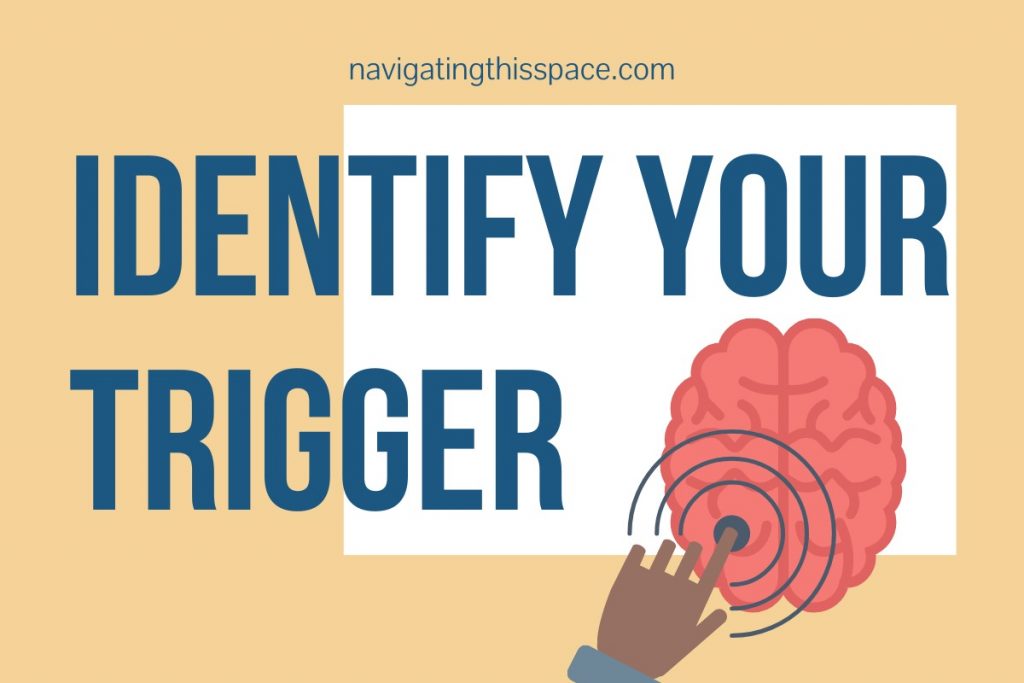
The next step is identifying what will trigger or cue your new behavior.
This could be something as simple as setting a daily alarm on your phone to remind you to do your new habit, or it might mean keeping your running shoes by the door, so you’re reminded to go for a run every day.
Making the Cue Automatic
Your new desired behavior needs to be something that happens automatically without you having to think about the trigger for your habit to become fully integrated.
Make the cue as obvious and simple as possible so you can’t forget or ignore it.
If you’re trying to change an old habit, the most successful way is to identify the trigger that’s currently cueing that behavior you want to change and replace it with the new habit.
Recommended Article: Your Habits And Routines Are Hurting Your Future
4. Make It Easy and Manageable
Making a new habit stick can be challenging, but there are a few things you can do to increase your chances of success.
First, it’s important to start small.
Trying to overhaul your entire lifestyle at once will be overwhelming, and you’re more likely to give up if you feel overwhelmed.
Second, choose a new habit that easily fits into your daily routine.
For example:
If you’re trying to eat healthier, choose a new habit that doesn’t require too much time or effort, like packing your lunch the night before instead of buying.
This simple action will make you feel rewarded for planning ahead.
5. Reward Yourself
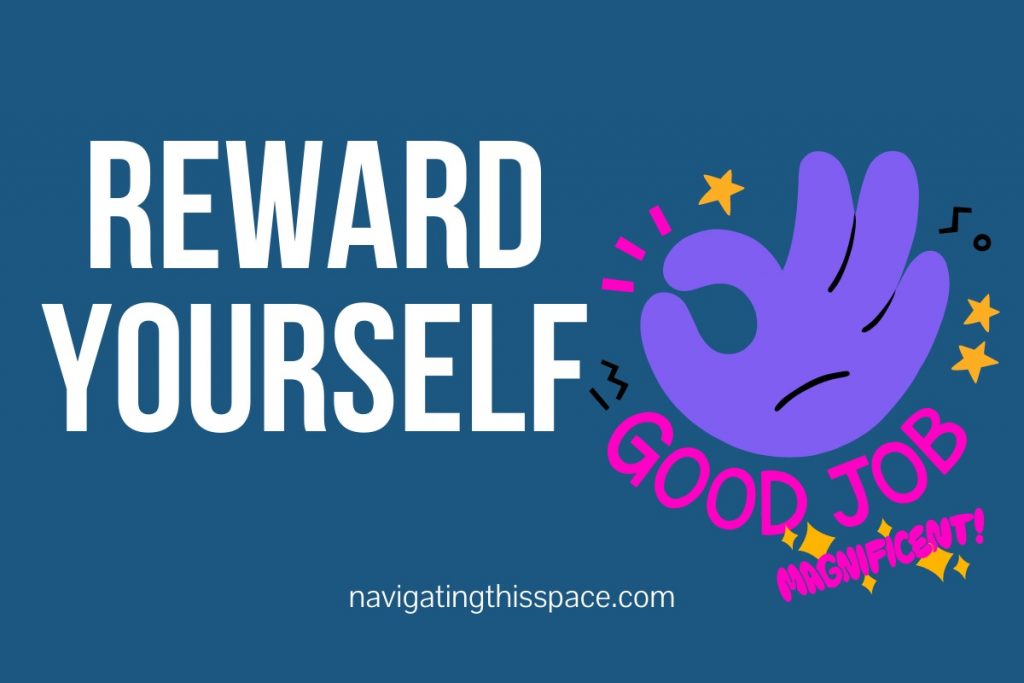
There’s no denying that forming new habits can be challenging but the great news is that it’s not impossible.
Whether you’re trying to eat better, exercise more, or just break the cycle of procrastination, it’s really easy to fall off the wagon after a few days or weeks.
However, rewarding yourself for each successful day or week can help you stay on track.
It doesn’t have to be anything major, just something that makes you feel good and motivated to keep going.
A simple reward system could look like this:
– For every seven days you stick to your new habit, allow yourself to watch one extra episode of your favorite TV show.
– After four weeks, buy yourself a new book or go out to lunch with a friend.
– After six months, take a short trip somewhere you’ve always wanted to go.
The key is to find something that makes you feel happy and motivated to stick with your new habit.
Recommended Article: Why is a Sense of Accomplishment Important + A Simple Goal-Achievement Plan You Can Start Right Now
6. Don’t Be Too Hard on Yourself If You Slip Up
Everyone makes mistakes, forgets, and slips up. Simply get back on track as soon as possible, and don’t beat yourself up about it.
New habits take time to form, so it’s important to be patient and keep going even if you have an occasional slip-up.
The key to implementing your new habit successfully is to not skip your trigger two times in a row.
If you do, it becomes easier to keep skipping because you’ve already broken the chain and that behavior introduces more wiggle room for you to make more excuses.
Don’t get caught in a cycle of excuses.
7. Analyze Your Environment
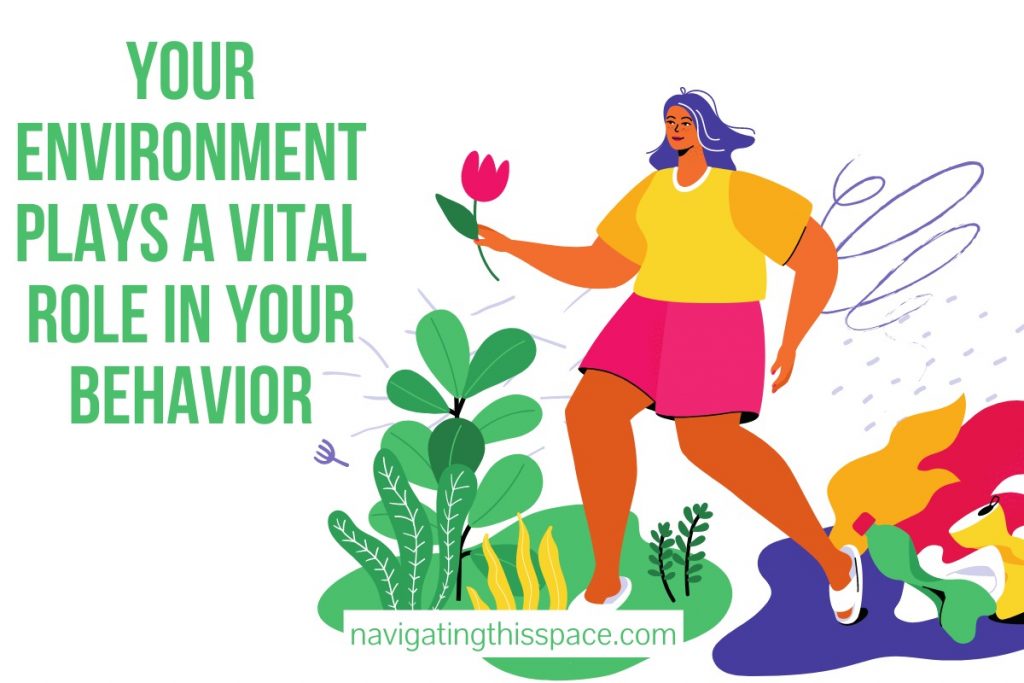
Make sure your environment is conducive to your success.
Remove any temptation or obstacles that could stand in your way.
For example, if you’re trying to eat healthier, get rid of all the unhealthy snacks in your house. Replace them with healthy options so when the trigger to snack occurs, you’re more likely to make the healthier choice.
This way, you won’t be as tempted to indulge in the unhealthy habits you’re trying to get rid of.
Your environment plays a massive role in your behavior, so make sure it’s set up for success.
8. Be Patient
It takes time to form new habits, so don’t get discouraged if you don’t see results immediately.
Think about it. When you were a child, it took you a while to learn how to tie your shoes, brush your teeth, or ride a bike.
You didn’t give up after the first few times. You kept trying until you finally mastered it.
The same goes for forming new habits.
It takes time and practice to make it a part of your daily routine. So be patient and keep at it.
9. Stay Motivated
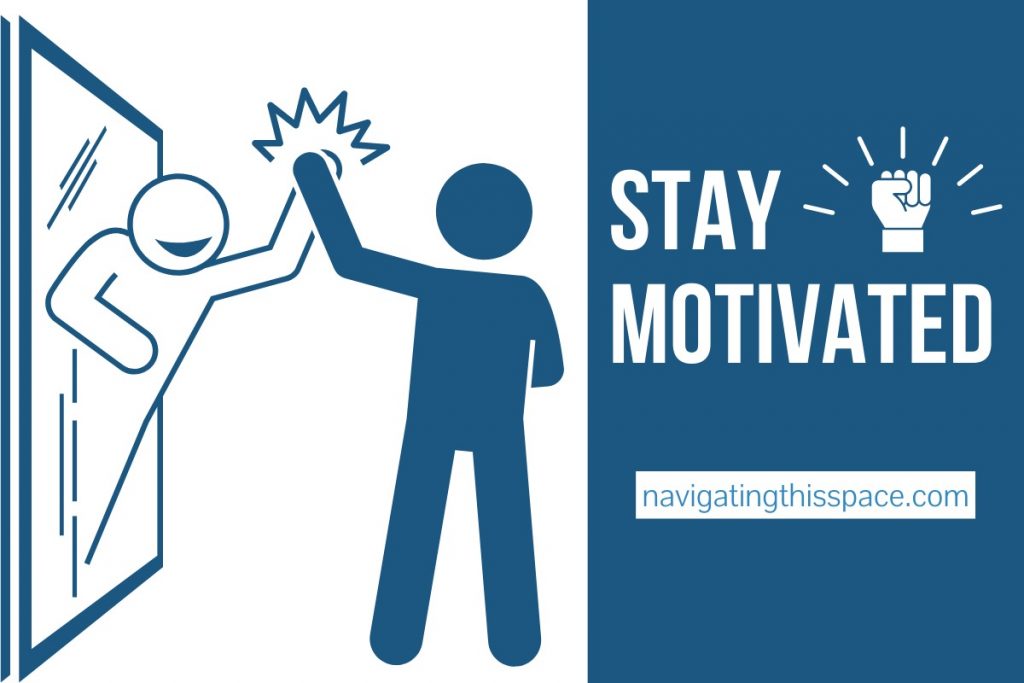
Thinking about how much better you’ll feel once you’ve reached your goals can be a great motivator to keep going.
When you’re tempted to give up or skip a day, remind yourself of why you’re doing this (your purpose) and how much better you’ll feel once you’ve reached your goal.
It’s also helpful to find a role model or someone who has already achieved what you’re trying to do.
Seeing someone else struggle and overcome the same challenges you’re facing can be a great source of motivation.
10. Focus on One Habit at a time
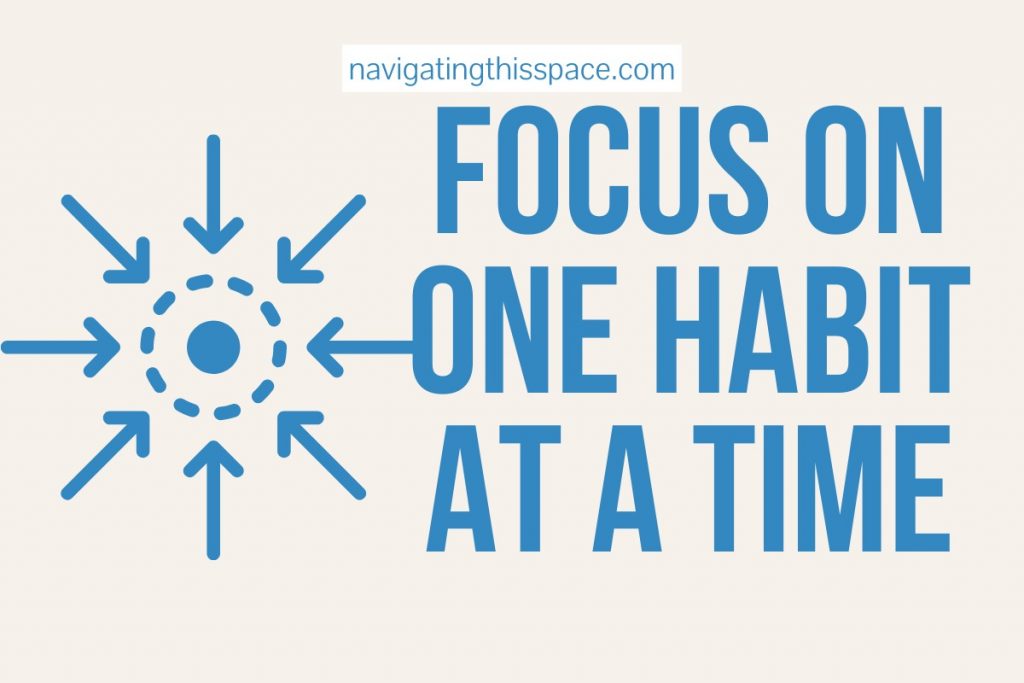
Creating new habits can be difficult, especially if you’re trying to tackle multiple changes at once.
When you’re trying to focus on several different habits, it can be easy to become overwhelmed and give up altogether.
Instead of overhauling your entire lifestyle at once, it’s more effective to focus on one habit at a time. This allows you to slowly incorporate the new habit into your life without feeling overwhelmed.
If you’ve ever tried to break a bad habit or establish a new one, you know that it can be difficult to stick with it. So don’t make it more challenging by adding more than one habit change at a time.
You may believe that taking on a lot at once will help you reach your goals faster. But it’s more likely to lead to frustration and ultimately cause you to give up.
Whenever you’re trying to make a change in your life, focus on one habit at a time until it becomes second nature before moving on to the next change.
Recommended Article: How Focusing On One Thing At A Time Will Increase Your Productivity
Having Fun Makes New Habits Stick
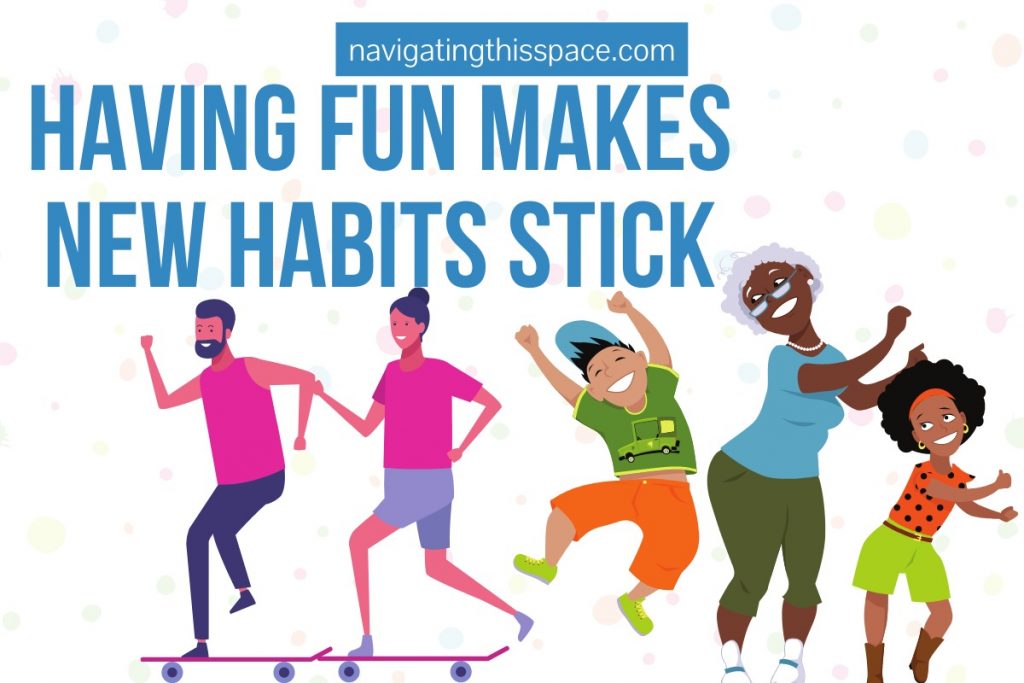
Habit formation is essential for developing new skills and behaviors, but it can be a difficult and challenging process.
One way to make it easier is to ensure that you’re having fun while you’re doing it.
When you’re enjoying yourself, you’re more likely to stick with the new habit, even when it gets tough.
Moreover, the positive emotions associated with fun can help to reinforce the new behavior.
So if you’re looking to form a new habit, make sure that it’s something that you’ll enjoy.
That way, you’ll likely stick with it in the long run.
By following these tips, you’re well on your way to making new habits stick.
Just remember to be patient, consistent, and motivated, and you’ll achieve your goal in no time.
Good luck!

Questions You May Have
Why can’t I stick to habits?
Change can be difficult, even when we know it’s for the best. One reason it’s hard is that old habits die hard. We’re creatures of habit, and our brain likes things to stay the same. That’s why starting small when you’re trying to make new habits stick is the best approach.
How long does it take to make a habit stick?
The answer may surprise you. Studies suggest that it takes anywhere from 18 to 254 days for a new behavior to become automatic. This means that if you want to make a change in your life, you need to be patient and persistent.
Is it true that it takes 21 days to form a habit?
The commonly accepted view is that it takes 21 days to make or break a habit. However, research indicates that it can take anywhere from 18 days to 254 days to establish a new habit. So don’t get discouraged if it takes a bit longer than 21 days. Just keep at it, and eventually, it will become second nature.
Pin It!
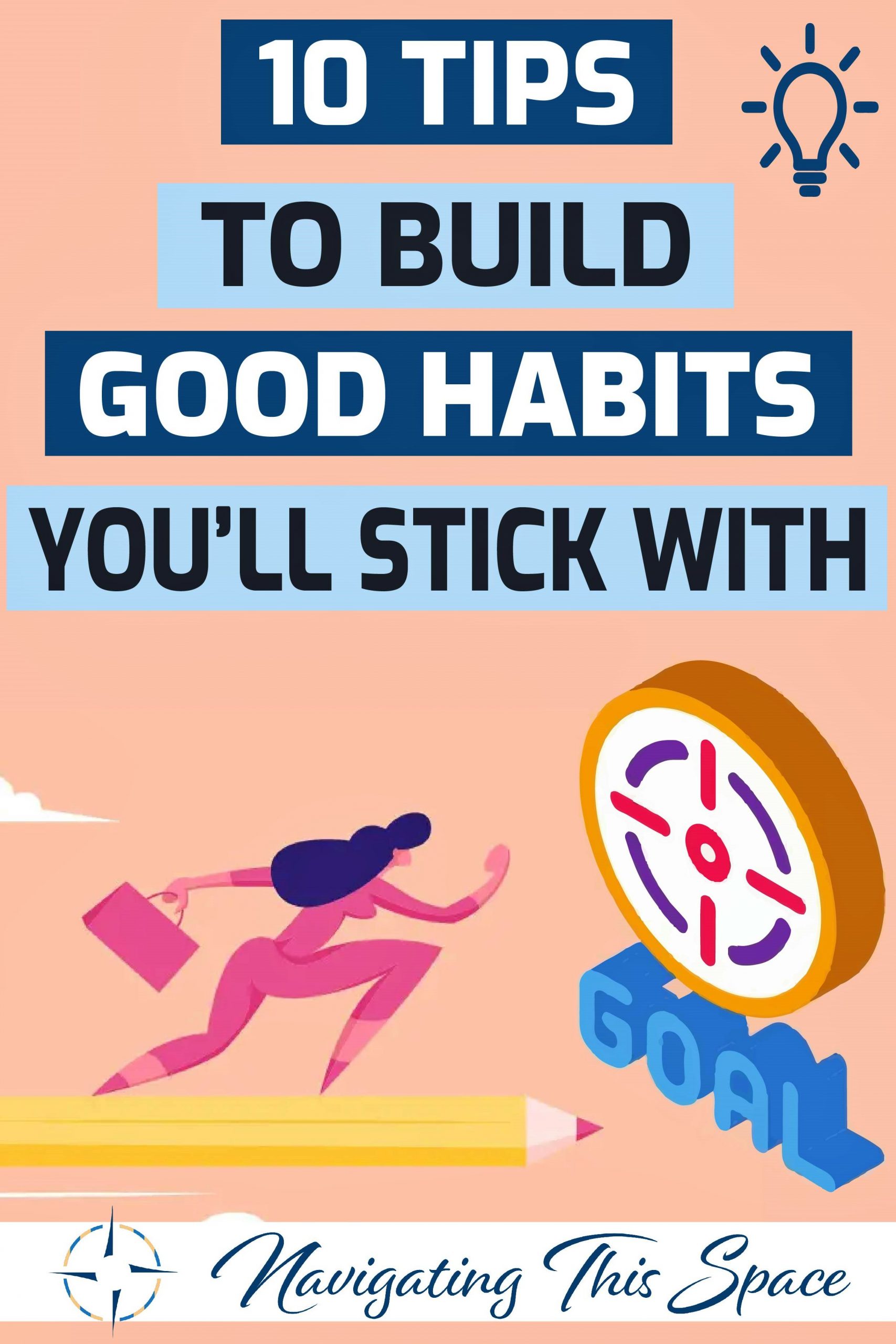
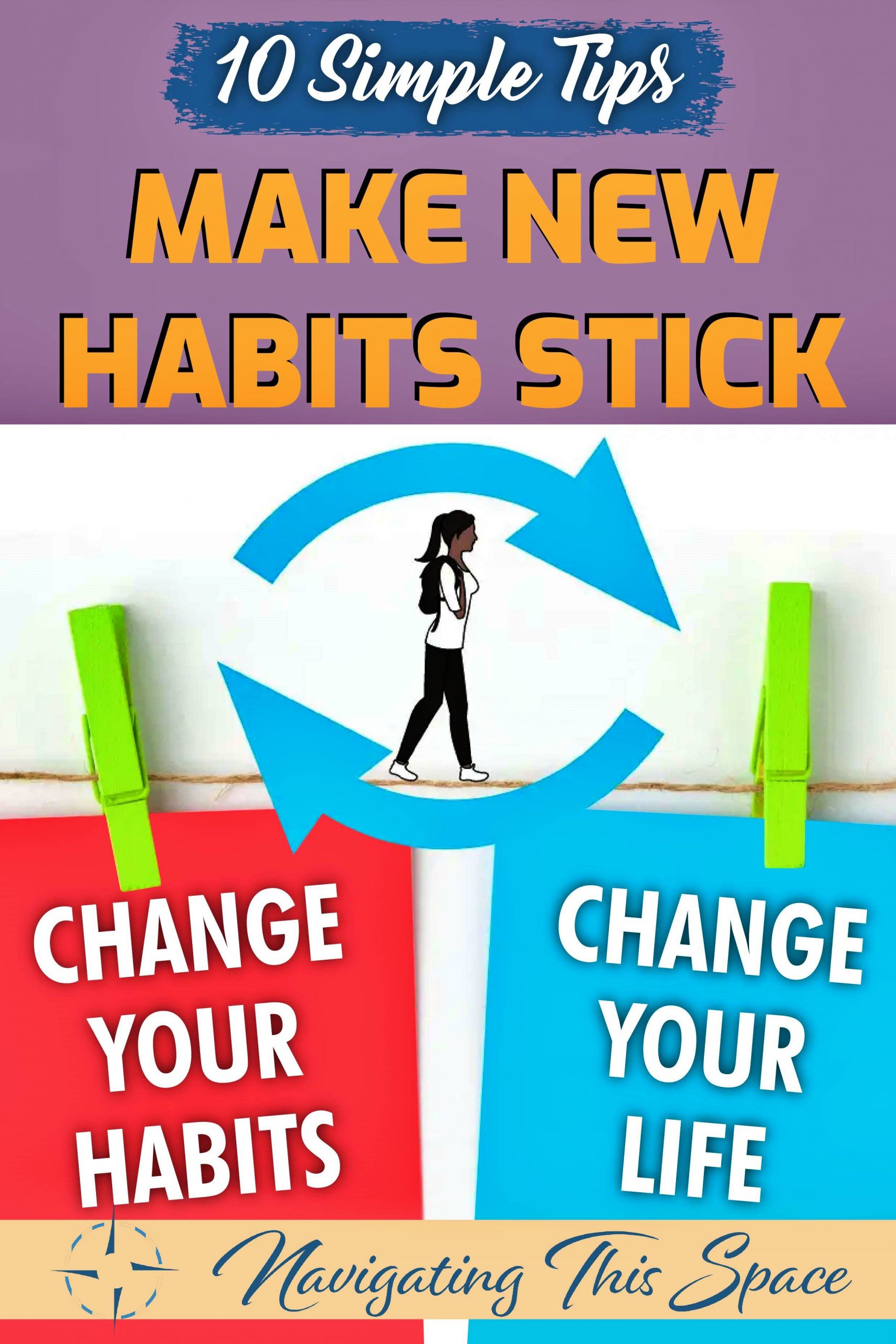
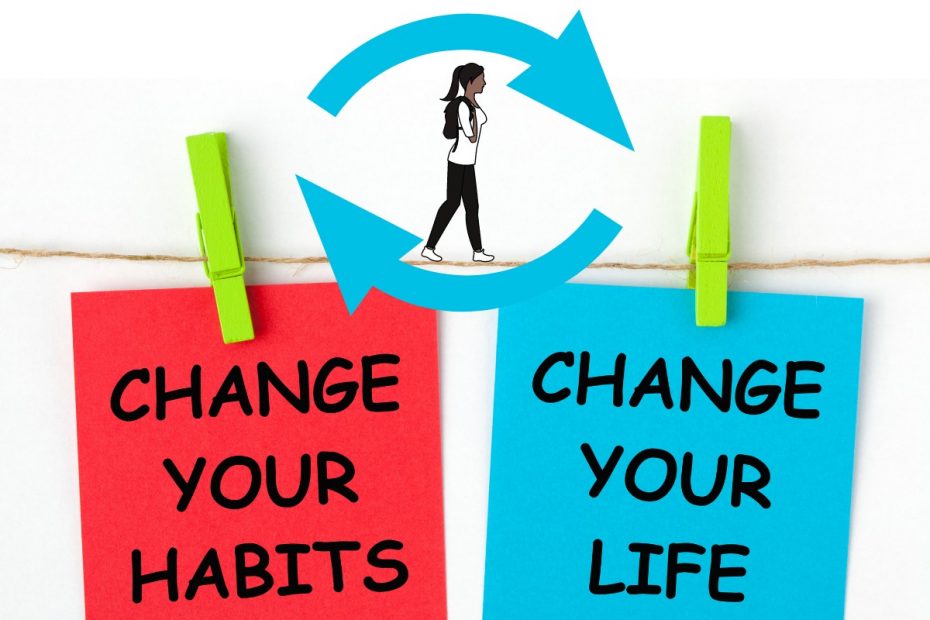
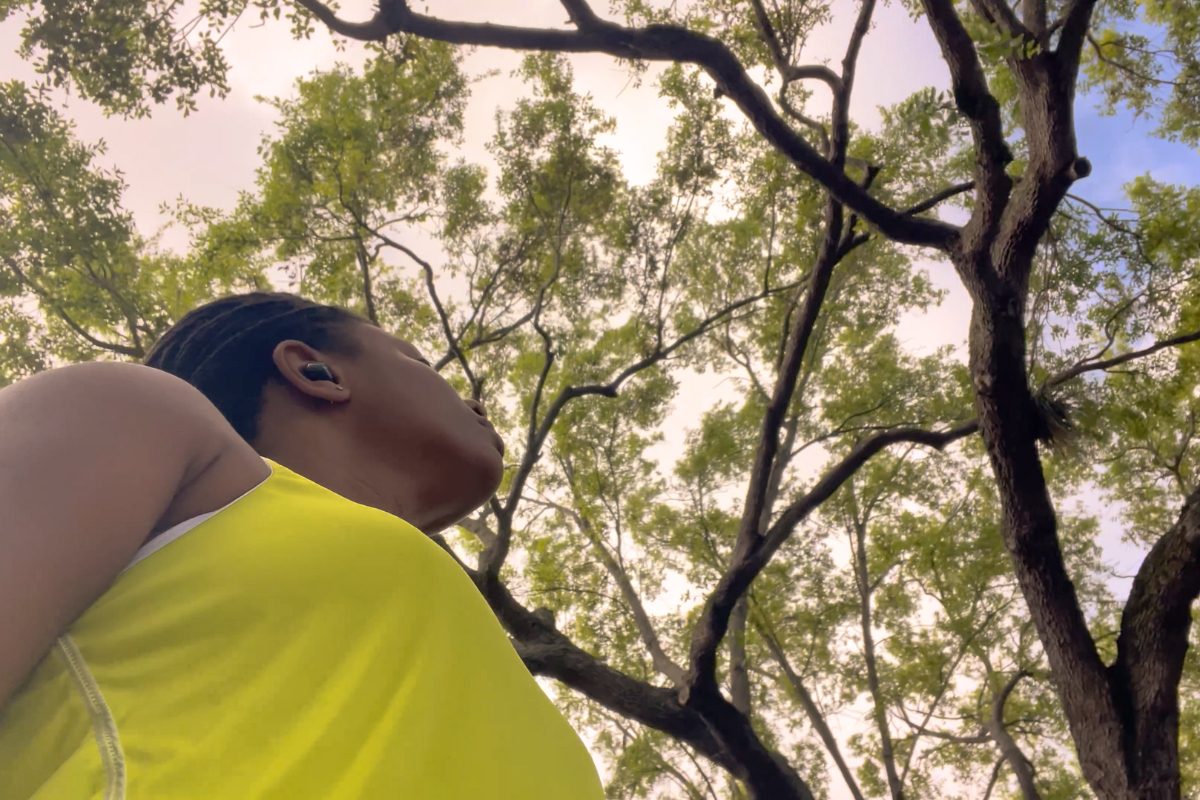


Great Tips!
Thanks for commenting!
Making my goals into smaller realistic obtainable goals is the smartest thing I’ve ever done!
I’m super happy and proud to hear that Morgan, keep up the great work one baby step at a time!
Great tips! Patience is definitely key as nothing happens over night
That’s true on all levels Deanna, thanks for always sharing your thoughts, I appreciate it!
Very insightful read!
Thanks Alejandra, I’m happy you found it insightful!
Great advice, I’ll be implementing some of those tips because I’m guilty of quitting my new habits !
One day at a time Liv, consistency is what works, good luck!
This was a great post! Forming good habits is so important and worth it. I love that you mentioned the importance of patience and motivation in forming a new habit!
Without patience and motivation, we’d quit everything Kara. Thanks for reading and commenting.
very informative post! Sticking to habits is hard, but these are great tips to start sticking to new habits. I look forward to reading more articles!
Being flexible and patient with yourself is so important. When you are realistic in tangible changes you can be successful! Thank you for sharing. 😊
Pastor Natalie (ExamineThisMoment)
Letstakeamoment.com
Great tips! Thanks for sharing!
Thanks for sharing. Since I’ve tried to learn how to live more sustainably, it’s breaking the bad habits developed over many years I found the hardest. This is a great reminder to be kind to yourself.
These are great tips! thank you for sharing. For me not beating up on myself is work in progress lol.
Thanks so much for putting this together! I really liked the part about being clear with your intentions but also being realistic. So important!
I love the idea of making the cue automatic. That really is going to help me stick with some of the new habits that I am trying to build.